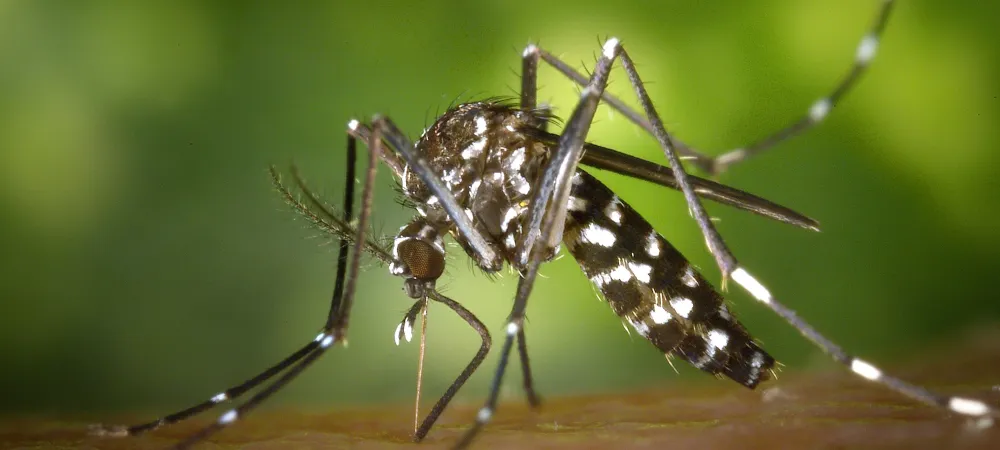Zika Virus and Mosquitos

The Zika Virus is a rare mosquito-borne disease that has made its way to the United States. Because of the disturbing images of what this pathogen can do to newborn infants, it has certainly piqued our interest. I have compiled a list of 4 things that may help understand a little more about this disease. The perspective of this article comes from a 35 year pest professional and an Associate Certified Entomologist, not from a medical field perspective.
1. The Mosquitos that transmit this virus are already here in the U.S.
Yes, the most common carriers of this virus are the Asian Tiger Mosquito (aedes albopictus) and the Yellow Fever Mosquito (aedes aegypti) . These are of our more “daytime” fresh-water mosquitos and they are infamous for also carrying the virus for Dengue & Yellow fever and Chikungunya viruses to name a few.
2. What are the chances of an outbreak in the United States?
If more imported cases continue to surface, especially as the summer months near, it may result in human-to-mosquito-to-human spread of the virus in areas of the country where mosquito vectors are present. The National Pest Management Association (NPMA), Centers for Disease Control and Prevention (CDC) and other organizations are monitoring the situation closely.
3. How do you reduce risk of mosquito exposure?
You can reduce your chances of getting mosquito bites by wearing loose-fitting clothing and using repellents containing at least 20% DEET while outdoors. Also, the Asian Tiger Mosquito and Yellow Fever Mosquito are, for the most part, both container breeders. You can help eliminate a buildup of these mosquitos by regularly inspecting your property for potential breeding areas (flower containers, bird baths, etc.). We also recommend regular mosquito treatments by a professional pest company around your home during the peak mosquito season (May through October) to greatly reduce mosquito populations.
4. Where is Zika virus found?
Zika virus was first identified in 1947 in Africa as an infection of rhesus monkeys in the Zika forest of Uganda. It was later confirmed to cause human disease in 1968. For many years infections appeared to be both rare events and limited to Africa, India, Southeast Asia and western Pacific Island. More recently, epidemics have spread across the Eastern Pacific and into South and Central America. There have also been reports of Zika virus cases in Illinois, Florida, Texas and New York, but all of the individuals obtained the disease while traveling to infected countries.
So what does it all mean to me?
The chances of a pandemic like what is occurring in Central America are ridiculously small. Just using common sense when it comes to mosquito exposure will reduce your chances of getting bites. But mosquito bites will occur, don’t be paranoid about getting a disease when it does happen.
Zika Virus
A study by University of North Dakota researchers shows that the mosquito species Aedes vexans, which is native to North America, can transmit Zika virus.I contracted Zika in late July 2016 in the Commonwealth of Dominica (small island in the Caribbean). At the time I was in Dominica I took pictures of the mosquito I was being bit by (see below). I sent the pics off to confirm but never got an ID. The reason I did was that the entire time I was in the country I never saw a Aedes – aegyti or alobopictus (striped) mosquito (these mosquitos at the time were the only known carriers of the Zika Virus). So study now confirms that there is another species transmitting this virus. My belief is that the mosquitos in Dominica were Aedes vexans. What does this mean to us? This breed of mosquito has the ability to have a much higher “percentage” to propagate the virus. This is a North American mosquito species that we may have to deal with too.
Hopefully it will mean nothing in the end.
Jackie Thornton
Associate Certified Entomologist
Check Out Our Related Blogs:
